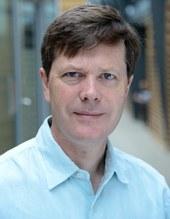
Richard Durbin
University of Cambridge
UK
EMBO | EMBL Symposium
This conference will take place at EMBL Heidelberg, with the option to attend virtually.
We are at the dawn of a new era of biology where we will start to understand how organisms function together and react or adapt to changes at different molecular levels. This includes the multitude of stressors that organisms are exposed to, from malnutrition and adverse climate events to many other biological, chemical and physical insults. Progress in biological analyses at both a single scale and across scales, have allowed us to further understand organisms in the context of dynamic environments. These can be environments which are changed by disease, commensal cohabitation or competition, as well as abiotic factors. With the molecular understanding we already have at the cellular and organismal levels, and new tools and quantitative approaches, this symposium will address how genotype and the environment bring about phenotypes at the population level.
“An excellent meeting covering important topics for future research, with outstanding speakers and excellent enthusiastic students.” – Isabel Gordo, Instituto Gulbenkian de Ciência, Portugal
“I really enjoyed the quality and diversity of the talks, all related but different. Enriching and awesomely organized conference!” – Julie Zaworski, New England Biolabs, USA
“One of the most enriching conferences in the recent past! Great venue, great food, great support team, and outstanding speakers and presentations. Kudos to the AV team for the glitch-free remote presentations. A great platform for young researchers and emerging scientists!” – Anupam Sengupta, University of Luxembourg
Please see EMBL’s COVID-19 safety recommendations if attending the on-site event.
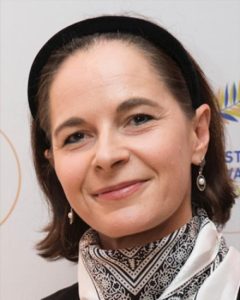
National Institutes of Health
USA
(Virtual speaker)
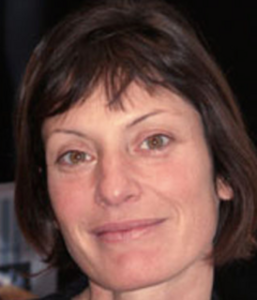
University of Vienna
Austria
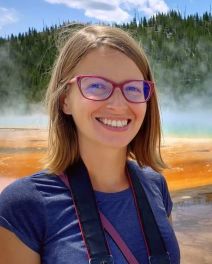
University of Valencia
Spain
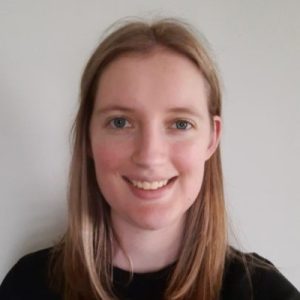
University of Sydney
Australia
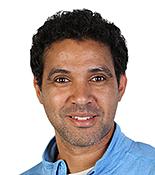
EMBL Heidelberg
Germany

Max Planck Institute for Chemical Ecology
Germany
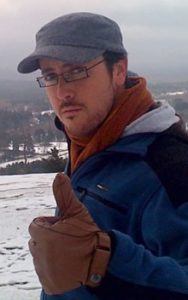
CNRS
France
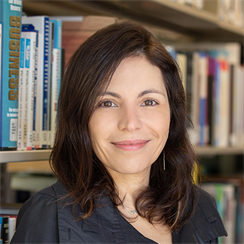
King Abdullah University
Saudi Arabia
(Virtual speaker)
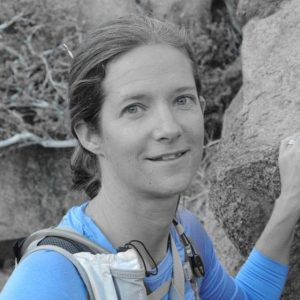
University of Cape Town
South Africa

University College London
United Kingdom
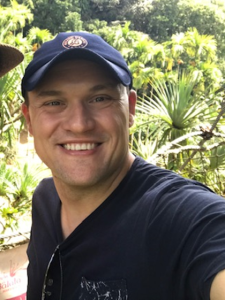
IFREMER
France

Hólar University and the Icelandic Museum of Natural History
Iceland

Catalan Institute for research and Advanced Studies
Spain

EMBL Heidelberg
Germany
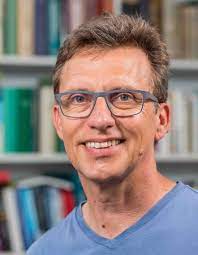
Max Planck Institute for Biology Tübingen
Germany
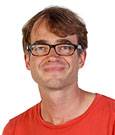
EMBL Heidelberg
Germany
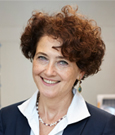
EMBL Heidelberg
Germany
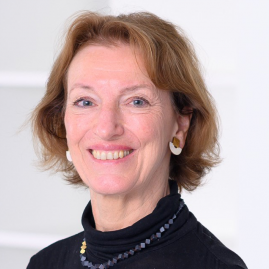
European Research Council
Belgium

EMBL Heidelberg
Germany
Got something to say? Tweet it! #EESOrganism
For registered participants, recorded talks will be accessible on demand for 2 weeks after the end of the event, unless indicated otherwise.
| Time (Europe/Berlin) | Speaker |
|---|---|
| 14:00 – 15:00 | Registration and light refreshments |
| 15:00 – 15:15 | Opening remarks |
| 15:15 – 18:30 | Session 1: Biodiversity Chair: Tobias Gerber – EMBL Heidelberg, Germany |
| 15:15 – 15:45 | In what way does the organism environment association drive the development and evolution of biological diversity Skúli Skúlason – Hólar University College, Iceland |
| 15:45 – 16:00 | A Diatoms tale: from the sea to lab and back! Antonella Ruggiero – EMBL/Stazione Zoologica A. Dohrn, Germany |
| 16:00 – 16:15 | Evolution of canalization: lessons from a classic case of resource polymorphism Kalina Kapralova – University of Iceland, Iceland |
| 16:15 – 17:00 | Coffee break |
| 17:00 – 17:30 | Australian genomes: saving us and saving them Kate Farquharson – The University of Sydney, Australia |
| 17:30 – 17:45 | Functional analysis of dna methylation in the marbled crayfish as a model to study rapid adaptation and invasiveness Jaime Diaz-Larrosa – German Cancer Research Center (DKFZ), Germany |
| 17:45 – 18:00 | Targeted volume Correlative Light and Electron Microscopy of an environmental marine microorganism Karel Mocaer – EMBL Heidelberg, Germany Not available on demand |
| 18:00 – 18:30 | Plant Paranoia Detlef Weigel – Max Planck Institute for Biology Tübingen, Germany |
| 18:30 – 19:30 | Dinner in Canteen |
| 19:30 – 20:30 | Drinks in ATC Rooftop lounge |
| Time (Europe/Berlin) | Speaker |
|---|---|
| 09:30 – 12:00 | Session 2: Marine symbiosis Chair: Antonella Ruggiero – EMBL Heidelberg, Germany / Stazione Zoologica Anton Dohrn, Italy |
| 09:30 – 10:00 | Microbial communities driving nutrient and carbon cycling in the Southern Benguela upwelling region Emma Rocke – University of Cape Town, South Africa |
| 10:00 – 10:15 | Interactions between marine picocyanobacteria and particulate chitin Giovanna Capovilla – Massachusetts Institute of Technology (MIT), United States of America |
| 10:15 – 10:30 | The genetic mechanisms underlying the transition to piscivory Marina de la Cámara – University of Iceland, Iceland |
| 10:30 – 11:00 | Coffee break |
| 11:00 – 11:30 | Synthase selected single cell genomics for discovering symbiotic microbes providing chemical defense for soft bodied marine animals Maria Dzunkova – Univeristy of Valencia, Spain |
| 11:30 – 11:45 | Bacterial physiology in an environmental Context Einat Segev – Weizmann Institute of Science, Israel |
| 11:45 – 12:00 | Nitric oxide signaling controls collective contractions in a colonial choanoflagellate Josean Reyes-Rivera – University of California, Berkeley / Howard Hughes Medical Institute, United States of America Not available on demand |
| 12:00 – 13:00 | Lunch |
| 13:00 – 17:00 | Session 2: Marine symbiosis (cont.) Chair: Detleft Weigel – Max Planck Institute for Biology Tübingen, Germany |
| 13:00 – 13:30 | Viral impacts in the marine world: from single-cells to planktonic ecosystems Flora Vincent – EMBL Heidelberg, Germany |
| 13:30 – 13:45 | Unravelling the role of venom in predator-prey interactions using natural populations and transgenic approaches in Nematostella vectensis Joachim Surm – The Hebrew University of Jerusalem, Israel |
| 13:45 – 14:00 | Determining hotspots of cellular adaptation in the marine ragworm Platynereis dumerilii Tobias Gerber – EMBL Heidelberg, Germany |
| 14:00 – 14:30 | Coffee break |
| 14:30 – 15:00 | Cell biology of bacteria that live on the surface of animals Silvia Bulgheresi – University of Vienna, Austria |
| 15:00 – 15:30 | Restoration and rehabilitation of coral microbiomes Raquel Peixoto – King Abdullah University of Science and Technology, Saudi Arabia (Remote speaker) |
| 15:30 – 16:00 | Flash talks (2 minutes / 1 slide per talk) #36 James Cleland, #37 Bechara Saade, #38 Markus Ulrich #39 Bettina Welz and #40 Frederic Zimmer |
| 16:00 – 17:00 | Poster Session |
| 17:00 | Free evening |
| Time (Europe/Berlin) | Speaker |
|---|---|
| 10:00 – 13:00 | Session 3: Terrestrial Symbiosis Chair: Einat Segev – Weizmann Institute of Science, Israel |
| 10:00 – 10:30 | When the environment is another organism: deciphering the insect-bacteria molecular dialogue in a nutritional mutualistic endosymbiosis Anna Zaidman-Remy – BF2i Lab, UMR INRAE/INSA Lyon, France (Remote speaker) Not available on demand |
| 10:30 – 10:45 | Caenorhabditis elegans susceptibility to virus infection is modulated by its naturally associated bacteria Ruben Gonzalez – French National Center for Scientific Research (CNRS), France |
| 10:45 – 11:00 | Indicators and partner specificity in plant-fungal interactions Leho Tedersoo – University of Tartu, Estonia |
| 11:00 – 11:45 | Coffee break |
| 11:45 – 12:15 | Outsourcing immunity: Symbiont-mediated defense of immature life stages in beetles Martin Kaltenpoth – MPI Chemical Ecology Jena, Germany Not available on demand |
| 12:15 – 12:30 | When noise is regulation and regulation is noise: how bacteria adapt their phenotypes in an uncertain environment Erik van Nimwegen – University of Basel, Switzerland |
| 12:30 – 13:00 | Microbiome Control of Host Immunity Yasmine Belkaid – NIH/National Institute of Allergy and Infectious Diseases, USA (Remote speaker) |
| 13:00 – 14:00 | Lunch |
| 14:00 – 18:00 | Session 4: Theory Chair: Raphael Aguillon – Bar Ilan University, Israel |
| 14:00 – 14:30 | Quantitative biology of microbial phenotypes in changing environments Wenying Shou – University College London, UK |
| 14:30 – 14:45 | Selective capture at phenotypic boundaries enhances population evolvability in a changing environment Bhaskar Kumawat – University of Michigan, United States of America (Remote speaker) |
| 14:45 – 15:00 | Zooming in and back out again: Biochemical reflections of intergenerational environmental history across the life course with examples in ADHD Su Chu – Brigham and Women’s Hospital and Harvard Medical School, United States of America Not available on demand |
| 15:00 – 15:30 | Terraforming ecosystems: from synthetic biology to community ecology Ricard Solé – Catalan Institute for research and Advanced Studies, Spain |
| 15:30 – 16:15 | Coffee break |
| 16:15 – 16:45 | When less isn’t more: the value of indigenous knowledge in understanding the relationship between the organism and its environment Phillip Wilcox – University of Otago, New Zeland |
| 16:45 – 17:15 | Ecology and evolution of host-microbiome networks Jose-Maria Montoya-Teran – CNRS, France |
| 17:15 – 18:00 | Keynote: Exploring ancient ecosystems using environmental DNA Richard Durbin – University of Cambridge, UK |
| 18:00 – 19:00 | Dinner in Canteen |
| 19:00 – 21:00 | Drinks in ATC Rooftop lounge |
| Time (Europe/Berlin) | Speaker |
|---|---|
| 09:00 – 10:45 | Session 5: Environmental adaptation in model organisms Chair: Giovanna Capovilla – Massachusetts Institute of Technology (MIT), United States of America |
| 09:00 – 09:30 | Linking animal behavior to life history transition in Cnidaria Aissam Ikmi – EMBL Heidelberg, Germany |
| 09:30 – 09:45 | Clockwise adaptation: CLOCK’s role in nematostella’s circadian response to environmental cues Raphael Aguillon – Bar Ilan University, Israel |
| 09:45 – 10:00 | Short heat stress has a long-term effect on mesenchymal stem cells transcriptome and their differentiation properties Ivana Ribarski-Chorev – The Hebrew University, Israel |
| 10:00 – 10:30 | Coffee break |
| 10:30 – 10:45 | Exposure to elevated temperature fatally disrupts nuclear divisions in the early Drosophila embryo. Girish Kale – Centre for Organismal Studies, Heidelberg University, Germany |
| 10:45 – 11:00 | Session 6: Paleogenomics Chair: Giovanna Capovilla – Massachusetts Institute of Technology (MIT), United States of America |
| 10:45 – 11:15 | Marine dinoflagellate phenology variations in a changing environment Raffaele Siano – IFREMER, France |
| 11:15 – 11:30 | Closing Remarks |
| 11:30 – 11:45 | Packed Lunch and departure |
On-site registration fees include admission, conference materials, COVID-19 safety measures, meals and coffee breaks. Participants are expected to book and pay their own accommodation and travel expenses.
Virtual registration fees include access to all of the talks (livestreamed and on demand) and facility to submit questions.
| On-site Academia | €700 |
| On-site PhD Student | €600 |
| On-site Industry | €900 |
| Virtual Academia | €200 |
| Virtual PhD Student | €150 |
| Virtual Industry | €250 |
A letter to support your visa application will be issued, on request, once payment of the registration fee is confirmed.
We recommend that you book your visa appointment as soon as possible, to avoid any delay with your visa application.
Accredited journalists may be eligible to register for complimentary press registration. Registrants may be required to provide accreditation or equivalent proof of press membership after registration. Please contact Maria Bacadare for more information. Please note that we do not offer complimentary registrations for editors of scientific journals.
Registration will be on a first come, first served basis. Your place can only be confirmed after payment of the registration fee. If you are added to our waiting list, please consider taking advantage of our offerings to participate virtually.
On-site participants: Types of payments accepted are international bank transfers and credit card payments.
Virtual participants: We are only able to accept card payments. In exceptional cases we can accept bank transfers. Please contact events@embl.de for details.
Only participants registering to attend the on-site event are eligible to submit an abstract. Abstracts will not be accepted from virtual participants.
After registration you can submit your abstract via a separate link that will be provided in the email confirmation. Alternatively, you can access the link on the confirmation page directly after registering. The same login credentials are used for both processes.
Please note:
Abstract body: The limit of 2000 characters refers to manually typed text and excludes spaces. If an error occurs try using a different web browser (preferably Google Chrome or Mozilla Firefox).
If you copy-paste the text into the form, hidden formatting might still be included which may cause the text to exceed the 2,000 character limit resulting in an error message. We recommend you clear all formatting before pasting in the text.
If you have special symbols in your text, make sure you are using Unicode characters, otherwise these will not be recognised.
Title: The title should not exceed 20 words. Only the first word of the title should start with a capital letter and the rest should be lowercase.
Authors and affiliations: Please fill in the author’s details as requested in the online form. The compulsory fields are: First Name, Last Name, Organisation Name (Affiliation or Company), Country and Email.
Kindly mark only one author in the role of First Author and please don’t forget to indicate who will be the Presenter.
Please enter your co-authors correctly via the system by adding accounts together with their organisation/institute. Do not copy-paste them into the body of the abstract text, as they will not be indexed in the abstract book.
Presentation types: When submitting your abstract, you can apply for an oral or poster presentation. A selection process will take place with the results announced 2-3 weeks after the abstract submission deadline.
For detailed instructions on how to submit a conference abstract, follow the instructions provided in this video.
Please check our FAQs pages for further information on how to submit an abstract.
Limited financial assistance is provided by the EMBL Advanced Training Centre Corporate Partnership Programme and EMBO in the form of both registration fee waivers and travel grants. These are available for on-site participants at EMBL Conferences and EMBO|EMBL Symposia, and for on-site and virtual participants at EMBO Workshops. We are currently working on securing funding for all virtual participants, and ask that you please apply for financial assistance for both on-site and virtual participation.
Your place in the meeting is only confirmed by paying the registration fee, which is mandatory even when receiving a fee waiver.
The fee waiver will cover the registration sum that you have paid to attend the course or conference.
The travel grant will cover the cost of travel to an on-site event (airfare, train, bus, taxi, accommodation, visa, and/or registration fees*) and is provided up to specified caps which are normally as follows:
–up to €400 for participants travelling to an EMBL Conference or EMBO|EMBL Symposium from within Europe.
–up to €1000 for participants travelling to an EMBL Conference or EMBO|EMBL Symposium from outside Europe.
–up to €500 for any participant travelling to an EMBO Workshop.
–up to €1000 for any participant working in Chile, India, Singapore or Taiwan travelling to an EMBO Workshop.
–up to €700 for any participant working in Croatia, Czech Republic, Estonia, Greece, Hungary, Italy, Lithuania, Luxembourg, Poland, Slovenia, and Turkey travelling to an EMBO Workshop.
*Registration fees are only covered for EMBO Workshops
The organisers may reduce the grant cap to accommodate more participants. Recipients will be notified of their travel cap amount when they are informed of the outcome of their application. Original receipts must be provided with your signature for all costs incurred within two months of completion of travel. Scanned copies cannot be accepted.
On-site participants
You may apply for financial assistance when submitting your abstract. In your application you will be asked to answer questions regarding why your lab cannot fund your attendance and how your attendance will make a difference to your career. Application for financial support will not affect the outcome of your registration application.
Virtual participants
If you are attending virtually, you can apply for financial assistance in the submission portal by the abstract deadline. Read the instructions on how to apply for financial assistance. Only submissions for financial assistance will be accepted. Presentation abstracts cannot be submitted here and will be declined.
In your application you will be asked to summarise your current work, answer questions regarding why your lab cannot fund your attendance, and how your attendance will make a difference to your career. Application for financial support will not affect the outcome of your registration application.
The scientific organisers will select the recipients of all financial assistance during the abstract selection process. Results will be announced approximately 6 – 8 weeks before the event start date, however for some events this may be delayed. Selection results do not impact your admission to the meeting. Selection is based on scientific merit, your current work or study location, the reasons for needing financial support, and the impact this event will have on your career.
Costs will be reimbursed after the meeting only once a reimbursement form and original receipts (from travel costs) have been received.
View our list of external funding opportunities and information on attending a conference as an event reporter.
For further information about financial assistance please refer to the FAQ page.
Accommodation is not included in the conference registration fee.
As further changes in our events are possible due to COVID-19, you should book flights, trains and hotels with flexible options and favourable cancellation conditions.
The hotels below have rooms on hold for participants until Tuesday 11 April 2023, in some cases at special rates. Please email the hotel directly, quoting the booking code EES23-03 to confirm the exact price of the room.
| Exzellenz Hotel | Meininger Heidelberg | Staycity Aparthotel Heidelberg |
| Hotel ibis Heidelberg | Premier Inn Heidelberg City | Hotel Vier Jahreszeiten Heidelberg |
| Leonardo Hotel Heidelberg City Centre |
Conference shuttle buses are free of charge for participants, and depart from designated bus stops near the hotels to EMBL and back, mornings and evenings.
Conference shuttle bus schedule
The bus stops for this conference are:
View Conference shuttle bus stops and hotels in a larger map. Please note that not every bus stop will be used for every event.
Address: EMBL, Meyerhofstraße 1, 69117 Heidelberg, Germany. For further information on getting to EMBL Heidelberg visit Public Transportation to the Venue. For information about accommodation and local transportation please refer to the FAQ page.
All meals and coffee breaks are included in the registration fee. Our catering staff will prepare a wide variety of vegetarian meals, meat and fish dishes, soups, pasta, fresh fruit and vegetables, as well as a variety of desserts.
Please wear your badge at all times when serving yourself.
No food or drinks are allowed in the auditorium.
There are lockers available next to the stairs leading down into the Auditorium. You will find some of those equipped with sockets to charge your smartphone/tablet etc.
In most places the electricity is 220 volts AC (50 cycles). An adaptor and a plug that fits the German socket may be needed for your appliances/laptop (i.e. American, Japanese, etc.). A USB charging station for electronic devices is available at the registration desk.
If you are interested in purchasing an EMBL souvenir (products presented in the glass display in the registration area), please ask at the registration desk for more information.
Please read EMBL’s COVID-19 safety policy for on-site events.
Do not smoke in any EMBL building.
Eating and drinking is prohibited in the Auditorium and all laboratories.
Do not enter any restricted areas or the laboratories unless instructed to do so.
If first aid is required …
In case of fire …
Beyond first aid…
Please remember to bring your own medication, if needed, to the conference. Note that the next pharmacy is a 4-minute drive from the EMBL, but for many medications you will be required to see a doctor to get a prescription.
Ensure in advance that your medical insurance will cover you during your visit in the event that you do need to see a doctor while in Heidelberg. In any case, the EMBL Course and Conference Office will assist you to get to the pharmacy and a doctor of your choice if necessary.
Wi-Fi is available everywhere on the premises using the EMBL-Events network and the event specific password, which will be provided on site. The eduroam network (secure, world-wide roaming access service developed for the international research and education community) is also available.
‘’Lost and Found’’ are kept at the registration desk until the end of the conference.
There are lockers available on-site to store your luggage, which require a 2 EURO coin to operate. There is another luggage room on level E0, which is free to use but remains unlocked during the conference.
There is a nursing room available in the ATC Rooftop Lounge on level A29.
During the conference an EMBL Photographer may be taking photographs. If you would not like to appear in these, please inform the photographer or a member of the Course and Conference Office.
We can help printing your boarding passes/train ticket. Please send it to events@embl.de and collect your print-outs at the registration desk.
There is a room for prayer, mediation and yoga located on level E0 behind the Auditorium. Please be respectful of other participants using the room.
A variety of activities in Heidelberg can be found on the website of Heidelberg Marketing.
During the event we provide conference shuttle buses to and from EMBL. In addition, there is the public bus 39A that serves the EMBL campus and taxis can be easily booked at any time. Information on the conference shuttle buses can be found on the individual event website and more detailed information on travelling to EMBL can be found on our Travel Information page.
| Hello | Hallo |
| Goodbye | Auf Wiedersehen |
| Good morning | Guten Morgen |
| Good afternoon | Guten Tag |
| Good evening | Guten Abend |
| Good night | Gute Nacht |
| I’m sorry | Tut mir leid |
| Excuse me… | Entschuldigen Sie |
| How are you? | Wie gehts? |
| I’m fine thanks. And you? | Mir geht es gut , danke, und dir/Ihnen? |
| What is your name | Wie heisst du? Wie heissen Sie? |
| My name is | Ich heisse |
| Do you speak English | Sprechen Sie Englisch? |
| I don’t understand | Ich verstehe nicht |
| Please speak more slowly | Können Sie bitte langsamer sprechen |
| Thank you | Dankeschön |
| Where is the toilet? | Wo ist die Toilette? |
| Please call me a taxi | Bitte rufen Sie mir ein Taxi |
| How do I get to….? | Wie komme ich zum/zur…..? |
| A beer/two beers please | Ein Bier/zwei Bier bitte |
| A glass of red/white wine please | Ein Glas Rot/Weisswein bitte |
| The menu, please | Die Speisekarte, bitte |
| Is there a local speciality? | Gibt es eine Spezialität aus dieser Gegend? |
| I’m Vegetarian | Ich bin Vegetarier |
| It was delicious | Es war hervorragend |
| The bill, please | Die Rechnung, bitte |
| I have a headache | Ich habe Kopfschmerzen |
| I have a sore throat | Ich habe Halsschmerzen |
| My stomach hurts | Ich habe Magenschmerzen |
| I’m allergic to | Ich bin allergisch gegen |
| I need a doctor who speaks English | Gibt es einen Arzt, der Englisch spricht? |
Please note that only on-site participants are able to submit abstracts and participate in the poster sessions.
We are using an event platform for this conference. More information about the platform will be shared ahead of the conference.
Additional information can be found in our Code of Conduct.
It is important to stay healthy and move around, especially when you are attending an event virtually. We have put together a few coffee break stretches and yoga videos in the conference platform for you to enjoy during the event.
Please use the Q&A function in the event platform.
If you have any other questions, you can go to the Help Desk in the event platform. Click on ‘more’ on the top menu and click Help Desk.
The programme is planned based on the Europe/Berlin time zone, unless otherwise stated. Please take your time zone into consideration when planning your attendance.
Please find additional information including FAQs, terms and conditions, COVID-19 safety policy and travelling to EMBL on our Information for Participants page.
COVID-19 information for on-site events at EMBL Heidelberg can be found in our COVID-19 FAQs.
Media partners
Disease Models & Mechanisms, The Company of Biologists Journal
EMBO Journal, an EMBO Press journal
International Union of Biochemistry and Molecular Biology
Open Biology, a Royal Society journal
We offer a variety of event sponsoring possibilities, with the flexibility to select a set sponsorship package or combine individual sponsorship options to suit your event budget. Discounts are available for companies sponsoring multiple events at EMBL Heidelberg. View other conferences, or contact sponsorship@embl.de for further information.
If you are interested in becoming a media partner of this event, please visit our media partnerships webpage.
EMBL wishes to warn sponsors of EMBL conferences and courses of fraudulent schemes purporting to offer sponsorship opportunities on behalf of EMBL or affiliated with EMBL officials. One current scam campaign of which we are aware is conducted using the name ‘Judy Eastman’ (judy@gopcontact.a2hosted.com) and entails approaches to sponsors offering sponsorship opportunities on EMBL’s behalf. Please be kindly advised that all relevant communication regarding sponsorship of EMBL conferences, symposia and courses is handled by EMBL directly and is sent from an official EMBL account. EMBL does not work with any external providers on sponsorship acquisition.
Please also note that:
Suspicious communications purportedly from, for or on behalf of EMBL should be reported to EMBL at the following email address sponsorship@embl.de.
EMBO | EMBL Symposia promote scientific communication and collaboration in the European research area. They provide scientists with a platform to discuss and exchange ideas on forward-looking topics and new developments in the life sciences.
Topics emphasise upcoming developments and the interdisciplinary nature of related fields. Jointly funded and organised by EMBO and EMBL – and complementary to their respective courses, workshops, and conference programmes – the symposia promote scientific communication and collaboration.
All symposia are held in the EMBL Advanced Training Centre (ATC) in Heidelberg, Germany, or virtually.
Want to let others know you’re attending this event? Take a look at our shareable media and feel free to use them in your social media channels or presentations.

Date: 9 - 12 May 2023
Location: EMBL Heidelberg and Virtual
Venue: Large Operon
Deadline(s):
Abstract submission: Closed
Registration (On-site): Closed
Registration (Virtual): Closed
Organisers:
Contact: Maria Bacadare